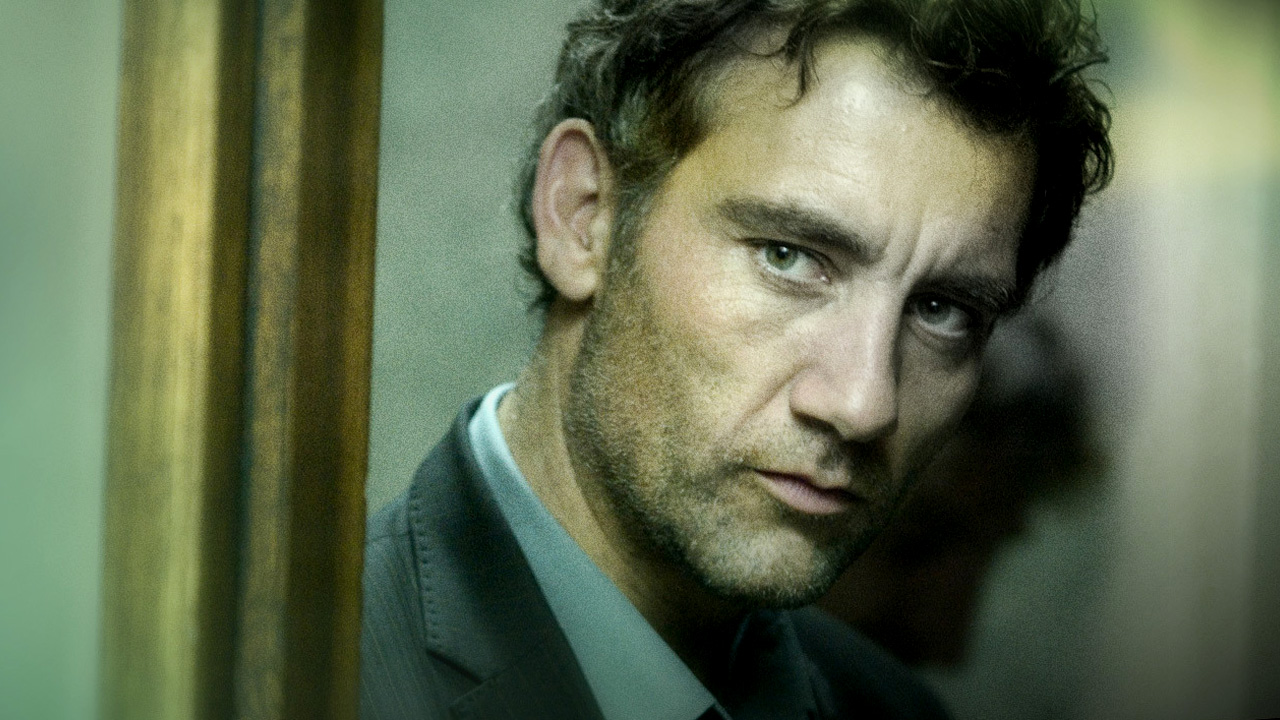
Denis Villeneuve’s long awaited sci-fi epic has finally arrived to every theater and television worldwide. Opening to rave reviews and over performing at the box office, to say that it’s been a big success would be an understatement. Right now, there’s simply no bigger movie than Dune.
Equal parts a Homeric adventure, environmental thesis and an indictment on religious fanaticism, the film tells the story of Paul Atreides — a reluctant hero gifted with prescient powers and destined for glory. Villeneuve accomplished quite a feat by introducing millions of non-readers to a complex world with an exhaustive lore without sacrificing any of the mysticism that defined the novel in the first place. What once seemed like an uncertainty has now become an afterthought with Warner Bros officially greenlighting the sequel that will wrap the main story up, set to release at some time in the fall of 2023.
As we anxiously count the days until we return to Arrakis, we thought of assembling a line-up of films that should scratch the itch fresh off Villeneuve’s epic. From cerebral sci-fi, anti-colonialist parables and desert odysseys, let’s go through each one of them.
1. Lawrence of Arabia (David Lean, 1963)
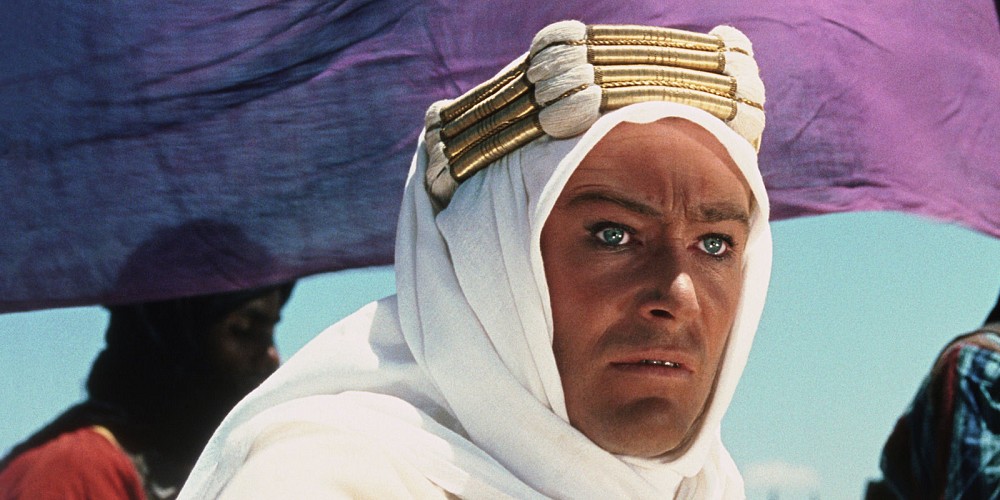
Sweeping vistas of the desert, nomadic tribes and a white saviour leading them to revolt against their oppressive tyrants. Barring giant sandworms, Dune enthusiasts will find almost everything they could be looking for in David Lean’s masterpiece. The story is a loose retelling of T.E. Lawrence’s endeavors throughout the Middle East as a British officer during WWI, where he served as an advisor to the Arabs in their fight against the Turks.
His journey closely mirrors that of Paul Atreides’ — an outsider thrown by chance into the wild desert who gets acquainted with their indigenous people and soon develops into their messianic leader. These similarities are far from trivial. After all, Frank Herbert was inspired by Lawrence’s Seven Pillars of Wisdom when concocting his own space opera. The Fremen are modelled after Arab and Islamic culture, while Arrakis’ spice mining is all but a stand-in for the oil wars of the Middle East. Both Paul Atreides and Lawrence equally subvert the traditional hero archetype as two cautionary tales about the dangers of imperialism and religious fanaticism.
If you still need further convincing, take it from the man himself. “Lawrence of Arabia is to cinema what the pyramids are to architecture”, argued Villeneuve while introducing Lean’s film in a recent festival. The French-Canadian claimed that watching it as a 19-year old on the big screen was a life-changing experience that had a tremendous impact on his psyche and creativity. “It’s a timeless masterpiece, a massive landmark in film history and my own film development. Lean was able to find a very impressive balance between the scope and epicness and the intimacy of the main character’s journey”.
2. Stalker (Andrei Tarkovsky, 1979)
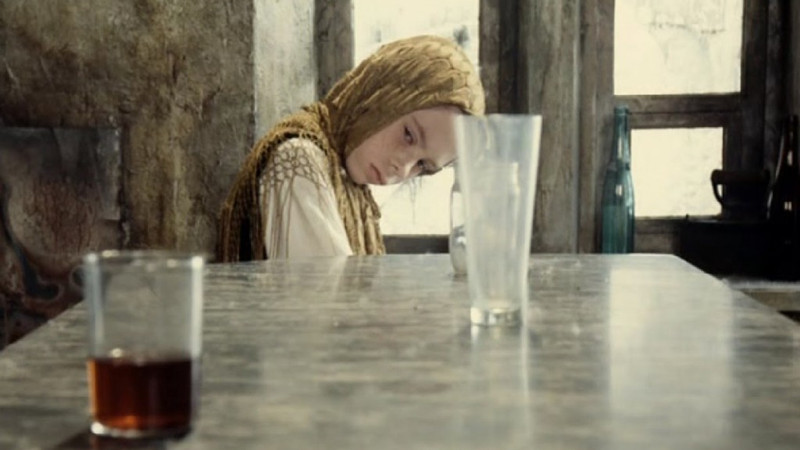
Arguably no science-fiction film has ever triggered as much in-depth analysis as Andrei Tarkovsky’s cryptic masterpiece. From an atheist manifesto to a Cold War allegory, it’s been labelled and regarded in almost every conceivable way. And yet, what’s made the film stand the test of time is the way it fully lends itself to contemplative introspection, still opening up to new interpretations all these years later.
Three men make their way through The Zone, a mysterious abandoned outpost where the laws of physics often don’t apply, rumored to contain a supernatural room that grants the innermost desire to those who enter it. For these three travellers, ignorance is bliss, and far preferable to confronting their inner demons — even at the expense of enlightenment. Through their choices and various exchanges, we get to learn their clashing ideologies. A writer and a professor, obvious stand-ins for idealism (arts) and pragmatism (science), are shown to be two sides of the same coin — equally poisoned by cynicism and terrified of a force beyond their comprehension.
Through the virtues of the titular character, who acts as the guide to the other two, Stalker drives home a simple but powerful message — faith, love and altruism are mankind’s redeeming qualities, and it’s upon ourselves to live by them. If you get a kick out of films like Dune where the journey far outweighs the destination, you’d hardly find one that warrants as much self-reflection as this Soviet classic.
3. The New World (Terrence Malick, 2005)
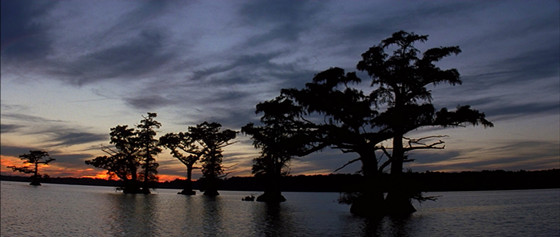
No modern director has pondered over mankind’s role in nature and the world as extensively or concisely as Terrence Malick. A humanist first and foremost, he’s been forever preoccupied with this concept and wrestled with his own metaphysical concerns throughout his career. Every Malick film is, to a certain degree, an indictment on the human race — often lamenting how low it has fallen and begging us to return to our roots. Materialism, prejudice and warmongering pose as the biggest obstacles towards spiritual harmony, something that will elude us as long as we’re bound by them.
The New World is a distillation of all Malick’s signature themes, a poetic meditation on the essence of conflict and compassion that recounts the violent exploits of British settlers in the Americas. From hypnotic scenery, lyrical voice-overs and an impressionistic narrative, the film checks all of his common trademarks. On a similar note to Paul Atreides, British captain John Smith arrives at an alien land, finds solace among the natives — falling in love with one — and begins to question his ties and duty to his people.
When it comes to anti-colonialist cinema, you’d be hard-pressed to find a more poignant tale than The New World — a spiritual wake-up call vouching for simple, human empathy.
4. Aguirre, the Wrath of God (Werner Herzog, 1972)
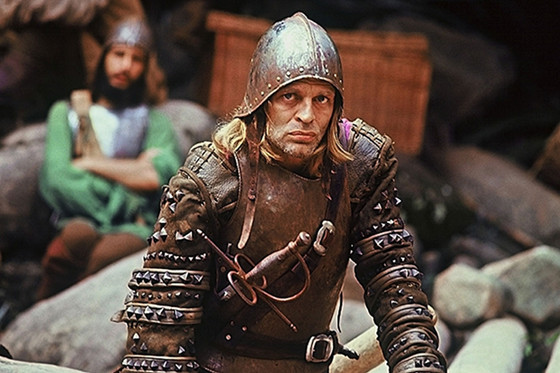
One of the biggest takeaways in Dune is that nature can be unforgiving. No matter how unrelenting mankind is in its pursuit to mold it to its liking, it can never be fully tamed. Villeneuve’s film perfectly illustrates this theme through its rough setting. Unlike most sci-fi tentpoles, Dune’s world is harsh, dreadful and borderline inhabitable. Life in Arrakis is ridden by water shortage, deadly weather and giant sandworms — by any metric not the kind of place you’d fancy for a vacation. But only there you can find the most valuable asset in the known universe — melange. Controlling this spice has triggered decades-worth of corporate profiteering and power struggle between rulers (the latest being the feud between the Harkonnen and Atreides).
Greed and cruel despotism are also the root of all evil in this cult classic courtesy of Werner Herzog. The film documents a 16th century expedition by Spanish conquistadores in search of El Dorado, the legendary city of gold rumored to lie hidden somewhere in the former Incan Empire. The Amazon proves to be a ruthless jungle driven by survival of the fittest, where any semblance of ethics is far outweighed by lust for power. Their quest for glory is soon riddled by famine, malady and betrayal, and with every drawback the characters begin to show their true colors.
Aguirre is a descent into madness — a proto-Apocalypse Now predating Coppola’s epic — that’s as fascinating purely as a narrative film as the mindblowing production that brought it to life.
5. O-Bi O-Ba: The End of Civilization (Piotr Szulkin, 1985)
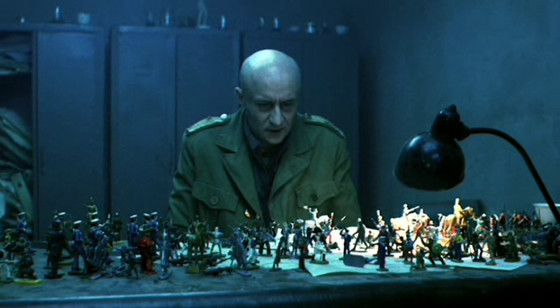
In Dune’s world, religion is shown to be the most lethal form of submission — a shared mythos that spreads like a disease and keeps the masses tamed. The Sisterhood of Bene Gesserit are shown to be experts in planting the seeds of superstition with fabricated legends of false prophets. In their desperation, the Fremen place all their hopes in the Lisan al-gaib, a legendary messiah who will allegedly lead them to glory.
This bleak Polish thriller made in the tail-end of the Cold War perfectly summarizes the need for myth and delusion in the face of despair. The film takes place inside an underground bunker that hosts the remains of human civilization after a nuclear holocaust deems Earth’s surface completely inhabitable. The story follows a jaded bureaucrat tasked with spreading the rumor that a saviour ship, the Ark, will soon come to their aid. This empty fabrication — deliberately conceived by the top brass to appease the masses — is eventually hailed as the ultimate salvation, with even the most skeptic holding a glimmer of hope.